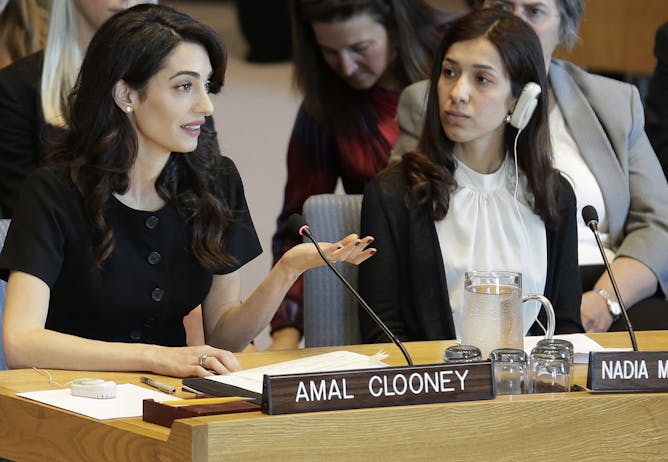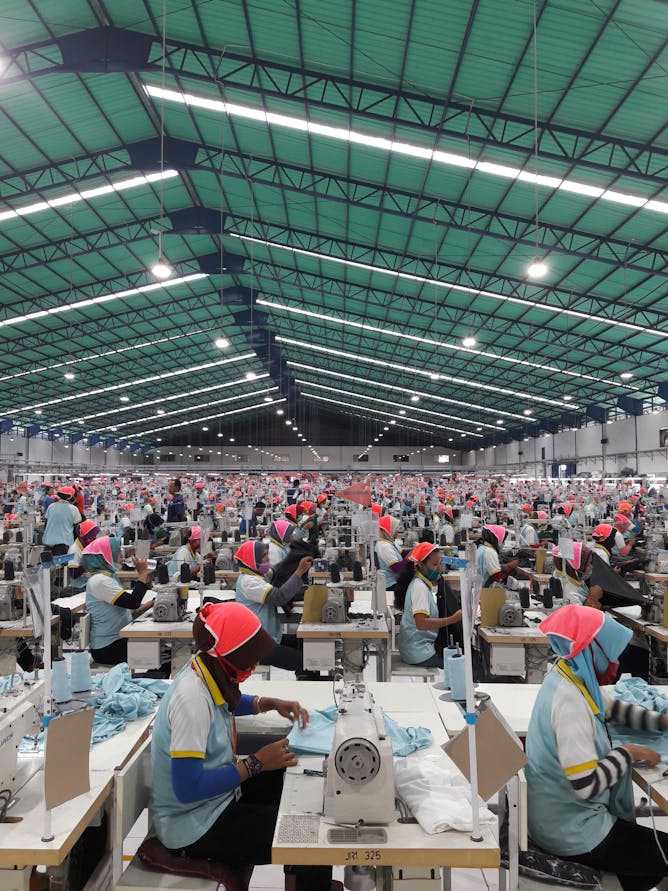|
Toxic masculinity is a term that originated in the 1980s and is used to describe a kind of masculinity that gives legitimacy to misogyny, homophobia and sexual violence. Today in The Conversation Canada, Galen Watts of Queen’s University looks at recent guidelines from the American Psychological Association about the problems associated “traditional masculinity ideology.”
That’s just one of several smart reads we’ve offered up for the start of your week:
And finally…will you perform an act of kindness today? If not, perhaps you should read the fascinating piece by John-Tyler Binfet of the University of British Columbia, who has been has been studying kindness for many years. When it comes to kindness, he says, adults could all learn something from children.
Regards,
|

What is toxic masculinity? It generally means men behaving badly.
Matheus Ferrero/Unsplash
Galen Watts, Queen's University, Ontario
Many hate the fight against toxic masculinity because they don't want to let go of male identity altogether. They don't have to. They just have to let go of the bad parts.
|

Amal Clooney speaks during a Security Council meeting on sexual violence at United Nations headquarters last week while Nadia Murad Basee Taha, right, listens.
(AP/Seth Wenig)
J.M. Opal, McGill University
A UN resolution to punish those who use rape as a weapon of war and to help those who survive such atrocities may not happen due to U.S. opposition
|

Kindness, from the perspective of young children, is an act of emotional or physical support that helps build or maintain relationships with others.
(Shutterstock_
John-Tyler Binfet, University of British Columbia
Students hear about bullying, but how about kindness? An education researcher developed a model for encouraging intentional kindness is the classroom.
|

Ontario Premier Doug Ford laughs as Finance Minister Vic Fedeli presents the 2019 budget at the legislature in Toronto in April 2019.
THE CANADIAN PRESS/Frank Gunn
Mark Winfield, York University, Canada
There's an apparent emerging Doug Ford doctrine in Ontario of short-term gain for long-term pain. It threatens to embed long-term structural costs for the province and its taxpayers.
|

New technology can be distracting for drivers. Engineers need to think more about the human experience when designing workplace and transportation technology.
Shutterstock
Peggy Nash, Ryerson University; Patrick Neumann, Ryerson University
The legalization of cannabis has started a discussion about on-the-job impairment. But drugs are not the only problem. Engineers should design workplaces that minimize the potential for human error.
|

Une usine de vêtements à Magelang, en Indonésie, en mars 2019. Même si les conditions de travail s'améliorent dans ce pays, la mode demeure une industrie inégalitaire, qui dégrade l'environnement.
Shutterstock
Anika Kozlowski, Ryerson University
La mondialisation, la mode jetable et les économies d'échelle ont créé une tempête parfaite. La mode est bon marché, facile et abondante, mais elle exploite ses travailleurs et détruit l'environnement.
|
Culture + Society
|
-
Michelle R. Scott, University of Maryland, Baltimore County; Earl Brooks, University of Maryland, Baltimore County
From spirituals about the trials of slavery to the fight for civil rights and the modern rhythms of swing music, Duke Ellington told a story about black life that was both beautiful and complex.
|
|
Environment + Energy
|
-
Rob McNeil, University of Oxford
When we read press reports about immigration it pays to think about what motivates the journalists.
|
|
|
|